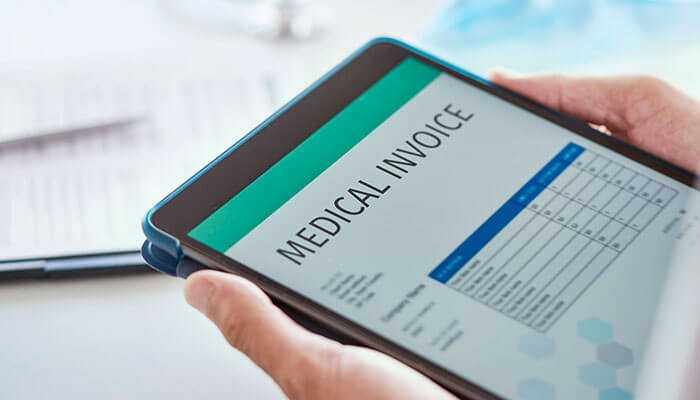Medical invoicing is critical in the healthcare sector, ensuring that healthcare providers are paid promptly for their services and enabling patients to manage their healthcare costs effectively. However, the intricacies of invoicing can pose challenges for healthcare professionals, with errors in the process carrying drastic consequences.
Various entities have introduced innovative solutions to streamline and simplify invoicing. These solutions harness technology and automation to enhance accuracy, efficiency, and patient satisfaction. This article will delve into some of the leading medical billing solutions for healthcare professionals.
1. Electronic Health Record (EHR) Systems
Electronic Health Record (EHR) systems transform healthcare practitioners’ records management and invoicing tasks. EHR systems optimize workflows by offering a platform for storing, accessing, and updating medical information and billing data in real-time.
EHR systems, equipped with features such as data management, appointment scheduling tools, electronic claims submission capabilities, and automated coding support, mitigate common human errors linked to paperwork, and this boosts precision and reduces the time spent on administrative duties.
Practice management software provides various solutions to help healthcare facilities efficiently manage their operations. These software options seamlessly integrate with EHR systems to offer support throughout the care delivery process.
2. Practice Management Software
From scheduling appointments, handling registrations, verifying insurance eligibility, and processing claims, practice management software simplifies every stage of the medical billing workflow. By incorporating automated features, like claim scrubbing, which identifies errors before claim submission, these platforms help reduce claim rejections or delays caused by missing information.
3. Outsourcing Medical Billing Services
Outsourcing medical billing services is another solution for healthcare professionals looking to streamline their revenue cycle management processes. By collaborating with third-party medical billing companies, healthcare providers can delegate the complexities of billing tasks and concentrate more on their primary services.
Outsourcing billing provides advantages, including access to industry expertise and ongoing awareness of evolving healthcare regulations. Moreover, outsourcing eliminates the necessity for in-house billing personnel and expensive software systems, and this could lead to cost savings for healthcare facilities while ensuring reimbursements for provided services.
4. Patient Portals
Patient portals allow patients to interact actively with their healthcare providers through platforms. While the primary purpose of portals is to improve communication between patients and providers, these tools also play a vital role in streamlining the billing process.
By using patient portals, patients have access to their records, can view and pay bills online, check insurance claims, and get answers to any billing questions. Patient portals promote transparency and help prevent disputes between patients and healthcare providers by giving patients insight into their obligations and offering convenient payment methods.
5. Artificial Intelligence (AI) Integration
Artificial Intelligence (AI) integration is increasingly making its way into various sectors, including healthcare. AI-powered solutions assist healthcare professionals by automating coding and claim-processing tasks.
AI-enhanced platforms, using machine learning algorithms trained on data, can accurately code procedures and diagnoses while optimizing the reconciliation process between clinical documentation and claims data, helping reduce errors typically caused by input while enhancing coding compliance efficiency.
In Conclusion
Streamlining billing is an aspect of improving revenue cycle management for healthcare professionals. Technologies such as Electronic Health Record systems, Practice Management software, and outsourcing services help simplify processes while enhancing efficiency and accuracy in billing procedures. With portals, individuals can conveniently view their bills directly. Moreover, incorporating artificial intelligence in coding claims helps simplify this procedure.
Thanks to these solutions, healthcare providers can enhance efficiency in managing revenue cycles, making billing less overwhelming and ensuring the success of their healthcare practice. By using technology and embracing automation, healthcare professionals can prioritize delivering patient care instead of dealing with intricate billing processes.



